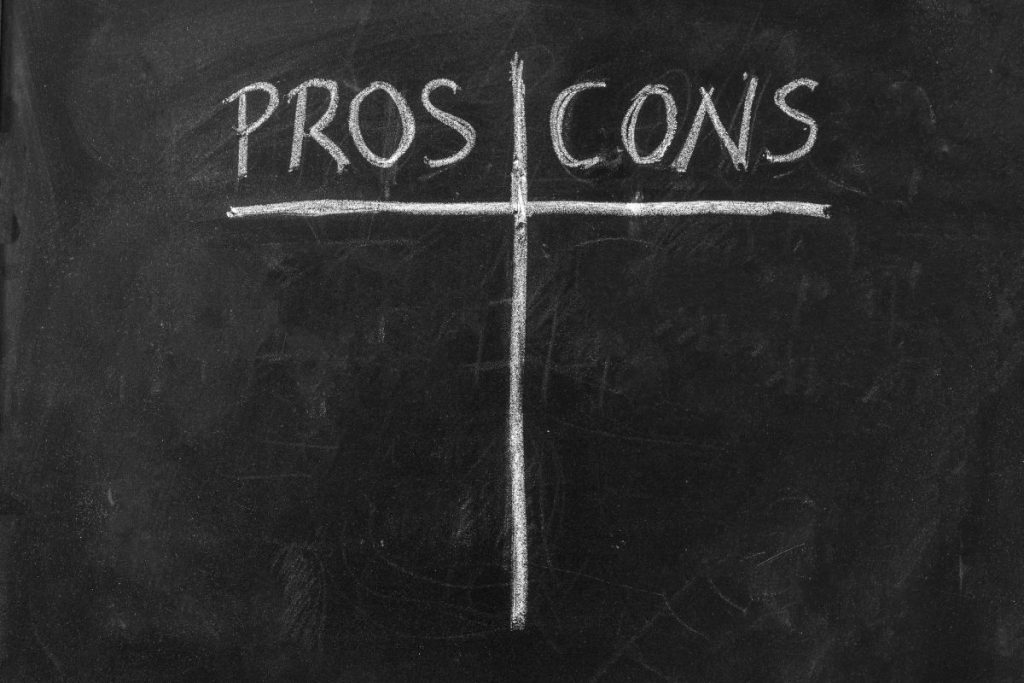People make around 35,000 choices a day, these decisions range from small ones like what to eat for today’s dinner to big ones like where to visit if we go to Italy or Barcelona, what shirt colour should I wear today to the career path. Every choice you make shapes your path in life.
In the midst of countless daily decisions, wouldn’t it be great if there was a way to ensure that the important choices lead to a fulfilling and purposeful life?
Let’s explore a simple but powerful method – three questions that can change the way you make decisions.

1. What’s the One Thing I Can Do Today That Will Make the Biggest Impact?
Have you ever felt overwhelmed with tasks and yet felt like you accomplished very little by the end of the day? It happens to all of us.
As productivity expert Stephen Covey once said, “The key isn’t to prioritise what’s on your schedule but to schedule your priorities.”
But how can you tell what’s urgent from what’s truly important when your to-do list is jam-packed?
Among all those tasks, there’s usually one that, if completed, can significantly change the course of your day or even your life.
Imagine you have an important work presentation coming up. While working on the slide design might seem urgent, isn’t it more impactful to deeply understand the presentation’s content and anticipate your audience’s questions?
Here’s a quick tip: At the beginning of your day, take a moment to reflect. Out of all the tasks you have, ask yourself this: If I could only accomplish one thing today, which task would bring the most significant positive impact?

2. What Could Happen as a Result of This Choice?
You’ve probably heard the saying that life is like a butterfly effect, where a tiny decision can trigger a series of events, either good or bad.
It’s interesting and sometimes a little scary to think about how even small choices can lead to significant, life-altering outcomes.
The philosopher and poet George Santayana wisely said, “Those who cannot remember the past are condemned to repeat it.” In simpler terms, if we don’t think about what happens as a result of our choices, we might end up making the same mistakes over and over again.
Let’s break this down further.
Considering the potential consequences of a decision means:
- Thinking About What Might Happen – Imagining both good and bad outcomes.
- Assessing the Risks – Understanding what’s on the line and being ready for it.
- Predicting Long-Term Effects – Recognising how today’s choices can impact your future.
For instance, think about that tempting urge to hit the snooze button in the morning. It might seem harmless at the moment, but what if one day of oversleeping turns into a regular habit?
Could it affect your morning productivity? Could it lead to more stress later on?
And here’s a common misconception: “It’s just a small decision; it won’t make much difference.” But remember, those seemingly insignificant choices can add up over time and shape the direction of your life.

3. How Can I Make the Best Decision?
Did you know that the difference between being ordinary and extraordinary often comes down to that little “extra” effort?
We make decisions every day, but how often do we push ourselves to ensure they’re the very best? As Aristotle once wisely said,
“We are what we repeatedly do. Excellence, then, is not an act, but a habit.”
This reminds us that it’s not just about making decisions; it’s about making them as good as they can possibly be.
Optimising a decision doesn’t mean making huge changes. It’s about fine-tuning and improving our choices to get the most out of them.
Here’s what optimising a decision can involve:
- Research – Gathering as much information as possible to make a well-informed decision.
- Feedback – Asking for input from trusted friends or mentors to get different perspectives.
- Review – Periodically checking in on the decision to make sure it’s still in line with what you want.
Let’s say you’ve decided to lead a healthier lifestyle. That’s a great choice.
But how can you take that decision and make it outstanding? Could you mix up your workout routine to keep it interesting instead of doing the same thing every day?
Or maybe you could add superfoods to your diet instead of just cutting out junk food?
Here’s a tip: Whenever you face a decision, challenge yourself by asking, “Is this the absolute best version of the choice I’m making? How can I make it even better?”
In the words of Peter Drucker, “The best way to predict the future is to create it.” Every decision we make is like a stroke on the canvas of our life’s masterpiece.
Final Thought
As we wrap up our exploration, let’s revisit the core questions we’ve uncovered and what they mean:
- What is the one thing I can do today that will have the most impact? Focus on actions that bring significant change, not just busyness.
- What are the potential consequences of this decision? Think about both short-term and long-term effects, considering how choices can ripple through your life.
- How can I optimise my decision? Elevate each choice from ordinary to exceptional, ensuring it aligns with your goals and values.
These questions guide us toward decisions that shape our present and future. We have the power to use them as tools in our journey to create our own destiny. Life isn’t just about what happens to us; it’s about how we respond.











